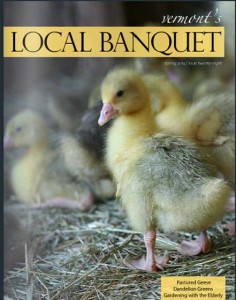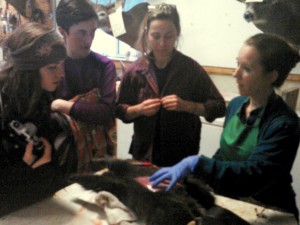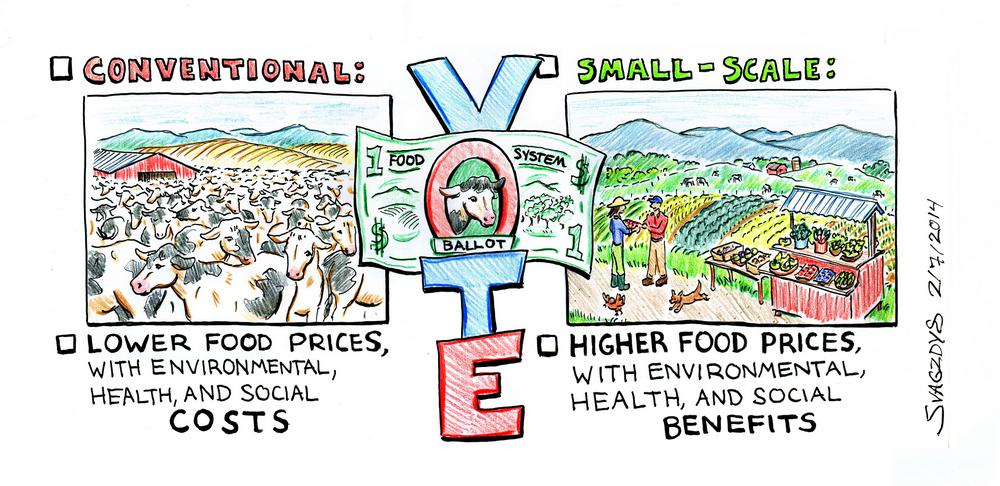Mari’s piece on the financial challenges to small farms and the need for more honest conversations about farm viability appears in the new issue of Local Banquet. 
Thanks to all who shared your thoughts and reflections as she prepared this piece. And most of all thanks to all of our customers, farm supporters and neighbors for your encouragement and participation in our farm venture as we have both thrived and struggled to get it off the ground.
As many of you note and many know first-hand as small business owners yourselves, keeping a small business viable is not easy.
While our story is one of struggle, like most small farms, we are also on a track towards success. We continue to get more efficient and effective (though those 25″ snowstorms and sub-zero March nights have an impact) and the tourism side of our business is beginning to take off and has great room to grow.
The phrase most often is Community Supported Agriculture and farm’s certainly exist in community and we have felt so fortunate to start this farm in such a supportive and collaborative neighborhood and community.
We feel and treasure that support — from being star customers, to granting us access to pasture, to reporting when animals are found out of place, offering assistance in times of challenge or just hecticness, supporting and hosting events at the farm, spreading the word about our offers, lending chairs, dishes, time, and of course advice on everything from predators to weather to equipment to business planning and much more. And all of this through the both the glory moments and as well as being patient with the challenging ones. And let us not overlook the value of the encouragement.
At the same time, it seems that we could also say it the other way, Agriculture Supported Community, highlighting the many ways in which local farms and local businesses give back to the community – from open space and environmental protection to local hiring, providing a community gathering spot and convenient products. Or even when farms like ours can offer some non-traditional farm products like the Williams College Winter Study class we hosted in January, which contracted with not only farm colleagues but also many neighbors to provide instruction and learning.
farms like ours can offer some non-traditional farm products like the Williams College Winter Study class we hosted in January, which contracted with not only farm colleagues but also many neighbors to provide instruction and learning.
In the midst of our busy lives, we rarely succeed in actively supporting all of the local efforts we believe in. But as Anna’s cartoon simply depicts, we do make choices with every dollar and hour we spend. We can only aspire to continually increase the amount that goes towards endeavors we believe in.
